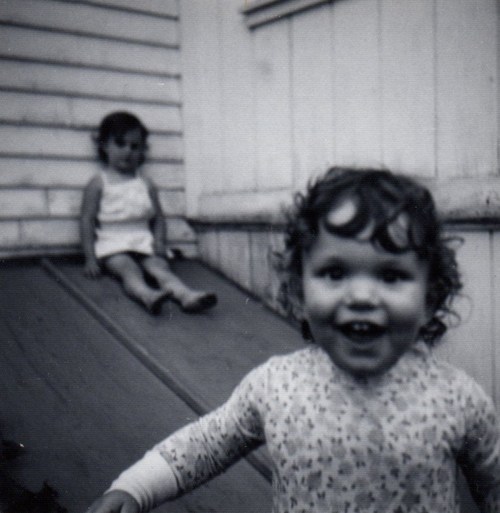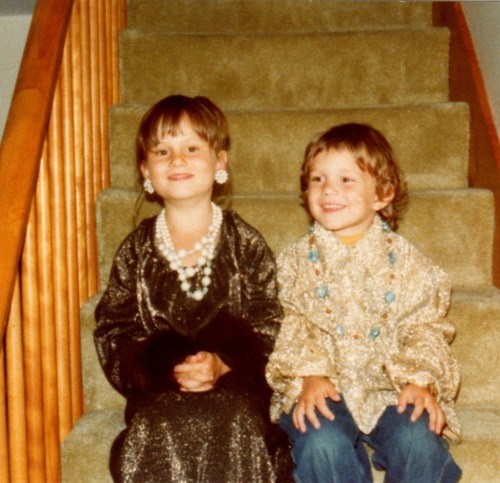Blog
-
Lila Perl Has Passed On
“In addition to Four Perfect Pebbles—the prolific Perl’s fiftieth book—many of her other works for children were renowned for having strong female characters. These include Dumb Like Me, Olivia Potts …
-
NPR Speaks with Latinas For Latino Lit about Diversity in Best-Of Lists
Hurtado says, “It’s important that Latino children see themselves represented in books, in media, in movies because…that’s the power of identification and how far it can go to help a …
-
Call for Submissions: Carter G. Woodson Book Awards
The award is meant to “encourage the writing, publishing, and dissemination of outstanding social studies books for young readers that treat topics related to ethnic minorities and race relations sensitively and …
-
Dial Books for Young Readers to Publish YA Horror Anthology
The list of authors who will contribute stories to this project include April Tucholke, Leigh Bardugo, Marie Lu, Kami Garcia, Carrie Ryan, Nova Ren Suma, A.G. Howard, Cat Winters, Stefan …
-
The Genre-Busting Success of R.J. Palacio’s ‘Wonder’
Though initially written for 8- to 12-year-olds, the book has grabbed the hearts of children and adults alike — and it’s not the only recent middle-grade novel to do so. …
-
Día! Diversity in Action Guest Post by Joanna Ison With the…
Día! Diversity in Action
Guest Post by Joanna Ison
With the population of the United States becoming more diverse each year, working to connect children, and their families, to books that celebrate our diverse population and rich cultures has never been more important. The Día celebration (El día de los niños/El día de los libros – Children’s Day/Book Day) works to do just that.
Día is a national initiative that works to nurture cognitive and literacy development in ways that honor and embrace every child’s home language and culture. Día started as an enhancement of Children’s Day, which began in 1925 as a result of the first “World Conference for the Well Being of Children” in Geneva, Switzerland. In 1996, Pat Mora, nationally acclaimed author of books for children and adults, proposed linking the celebration of childhood and children with literacy.
Since its conception, Día has expanded to be a daily commitment to linking children and their families to diverse books, languages and cultures. Currently Día is celebrated throughout the United States by libraries, schools and community organizations alike and is growing every year. From book clubs, to story times to full multicultural celebrations Día celebrations throughout the country take on all shapes and sizes.
The Día website supported by the Association for Library Service to Children (ALSC), a division of the America Library Association (ALA), features a wide variety of free resources to help anyone incorporate Día into their curriculum, programming or family activities.
Want an idea of a multicultural book to read to your 6 year old at bedtime? We’ve got a booklist with over 100 titles for age’s birth to 12! Want to start a Día Family Book Club? We’ve got a toolkit that takes you through the process! Want program suggestions, coloring sheets, worksheets, posters, bookmarks and buttons? Yep, we have those for you too!
Visit the Día website today to learn more, browse through the National Program Registry for events near you and register your own program while you’re at it!
In the spirit of Día, children’s book authors and illustrators whose works celebrate diversity are invited to submit a short video about their work and the importance of recognizing our common plurality in children’s books through the Día Author and Illustrator Video Project. Videos will be featured on the Día website and YouTube channel to be shared with librarians, children and parents.
An example video featuring Pat Mora, founder of the celebration, is showcased above and can be viewed through the Día website.
For more information on how to submit videos to the Día Author and Illustrator Video Project please visit: http://dia.ala.org/content/d%C3%ADa-author-and-illustrator-video-project.
-
Announcing the Winners of the 2013 Jane Yolen Mid-List Author Award
The SCBWI is proud to announce the winner and honor recipients of the 2013 Jane Yolen Mid-List Author Award. Congratulations to winner Eve Feldman, author of such works as Billy …
-
New National Ambassador for Young People’s Literature to Be Announced on January 2, 2014
FOR IMMEDIATE RELEASE Librarian of Congress James H. Billington will announce the next National Ambassador for Young People’s Literature on January 2, 2014. The post was created in 2008 by …
-
What is the Appeal of Print Books?
“Some recent reports have found that the tactile feeling of paper can also create a much more immersive learning experience for readers. Why? Several scientists believe it is neurological. A …
-
The Society of Children’s Book Writers and Illustrators Partners with the Authors Guild to Expand Booktalk Nation Series
FOR IMMEDIATE RELEASE December 4, 2013 The Society of Children’s Book Writers and Illustrators is extremely proud to announce a partnership with the Authors Guild to curate the Children’s Book …
-
‘The Absolutely True Diary of a Part-Time Indian’ Banned in a West Virginia Middle School
“Attention was drawn to the book last week after a parent, Misty Frank, objected to her eighth-grade son having received the reading assignment from teacher Dawn Welsh. Frank raised concerns …
-
Simmons College and The Carle Announce January Graduate Courses
Writing for Children I, taught by Peter Francois Littell, investigates the process of writing fiction for children through written assignments and class discussion. The class also examines different narrative forms …
-
Lauren Morrill to Pen Two Young Adult Novels
The story of The Trouble with Destiny involves a high school band and a cruise ship. The second book, My Unscripted Life, features “swoony actors, tempestuous actresses, one average girl, …
-
Jarrett J. Krosoczka Opens Up the 4th Annual Auction in Support of the Joseph & Shirley Krosoczka Memorial Youth Scholarships
Every year, he hosts an auction filled with unique items to raise money for a scholarship he established honoring the memory of his beloved grandparents. These scholarships will be given …
-
Winners Announced for the 2013 Goodreads Choice Awards
For Veronica Roth, this is the the second year in a row she has been recognized by the Goodreads community. In 2012, the Divergent trilogy creator earned first place in …
-
Study Shows Educational & Psychological Value of Letting Children Read What They Want
NEW YORK, N.Y. (December 4, 2013) – A new book examining the nature and variety of pleasures students get from reading popular genres shows the educational benefits of and often-rigorous intellectual …
-
Dumpster Diving: An Observation on Class in Children’s Books
When my sister and I were kids, we used to play next to (and sometimes on) the dumpsters in the parking lot while my mother cleaned offices. At the age of twenty-two, my mom was a single parent of two small children, putting herself through college while working as a waitress and cleaning lady. We were on food stamps and participated in WIC (Women, Infants, and Children) and AFDC (Aid to Families with Dependent Children). I had free lunch at school. Welfare paid for our childcare so my mom could work and take classes, and somehow, we managed to squeak by.

 Eventually my mom graduated and took a job as a teacher, and things improved. They improved even more when she remarried and we became a two-income household. My lunches went from free to reduced-price. And by high school I paid top dollar for my soggy pizza and curly fries and had an allowance of three dollars a week. Which wasn’t half bad in the 1980s, all things considered.
Eventually my mom graduated and took a job as a teacher, and things improved. They improved even more when she remarried and we became a two-income household. My lunches went from free to reduced-price. And by high school I paid top dollar for my soggy pizza and curly fries and had an allowance of three dollars a week. Which wasn’t half bad in the 1980s, all things considered.I was a smart kid and did well at school. I got a generous financial-aid package to attend Harvard and found myself living in the Yard, taking classes from future and former US Cabinet officials when I was the age my mom had been when she was cleaning offices and struggling to put food on the table. I was surrounded by private school kids and legacy students. To say I experienced culture shock is putting it mildly.
So yeah, class interests me. I care a lot about public assistance to the poor, and I have some insight into the problems of working single parents and their children.
But oddly enough, I haven’t brought that focus much into my work as a children’s book editor, even knowing firsthand how powerful books can be for the disadvantaged. Once I sallied forth from Cambridge, Ivy League diploma in hand, I kind of forgot about my roots.
I was reminded of these roots recently, however, when the CBC hosted a diversity workshop here in Boston. Cathryn M. Mercier, Director of the Center for the Study of Children’s Literature at Simmons College, taught a three-hour “class on class.” The following is from the registration information:
This workshop will examine how class appears, or as sociologist William Julius Wilson claims, disappears, in literature for children and young adults. In an intensive, hands-on session, participants will learn how to read class by exploring the following questions:
- Where is class indicated in books?
- Where or how do we ignore the class indicators that are there?
- What kind of diversity does class status constitute and why should we care?
- What kind of other myths (power, visibility, inclusion, representation) are covered by the stories we tell about class in the stories we tell to our children?
The workshop content is proprietary, so I can’t get into the specifics of what we read and how the class was structured, but I can report that it was a lively discussion among colleagues. The attendees were mostly fellow publishers, many of whom were graduates of the Simmons children’s literature program. We examined middle-grade, YA, and picture books.
One strategy I’ll take with me into my editorial work is to look more carefully and deliberately for class markers and where they appear or don’t appear in text and art. Indeed, the latter is an intriguing issue to explore in any book: who is NOT in a given story, and why? Other questions that came up for me:
- Is it possible that when I edit a text for clarity and brevity, I might be stripping out class markers that the author has included? (Keep in mind that most of my editorial cuts happen well before an illustrator gets to see the text.)
- What effect does propagating a middle-class norm have on children either above or below that “normative” level? How important is it for children to see themselves in a book, and how does that affect their enjoyment of the title?
- Isn’t “middle class” a rather imprecise catch-all anyway? What do I mean by “poor”? “Middle class”? “Rich”?
- How can I better balance the natural impulse to show kids a better (easier/simpler) world with the need to teach them about the one they live in right now?
- Is it possible to separate class from other labels such as race and gender?
- Can I work harder to understand how my unconscious ideology and the author and illustrator’s unconscious ideology are influencing the book?
- Aside from encouraging artists to explore non-suburban settings and on occasion to depict an apartment building instead of a single-family home, what more could I be doing to normalize different socio-economic realities in the books I help shape?
I have no answers. Just questions. But the point is that I’m examining my role and my unconscious biases. By looking and seeing what’s actually there, change can be effected.
I got my first pair of glasses when I was in second grade. We were still poor, so I have no idea how my mother afforded them. I imagine yet another government program came to our aid. I’ll never forget looking up at the trees around the playground and seeing individual leaves where there had only been a shaggy green blob before.
When we consider how class, race, gender, culture, physical ability, religion, and sexual identity appear in children’s literature, we have to consciously remind ourselves to put on our proverbial glasses so we can see the full spectrum of human experience and include it in the books we make and give to our children. Looking at the world this way, we might even see kids playing in dumpsters.

Yolanda Scott is editorial director at Charlesbridge, where she has worked since 1995. She is a co-founder of Children’s Books Boston and a former executive board member of The Foundation for Children’s Books, as well as a member of the CBC Diversity Committee. She lives near Boston.
-
The New York Times Book Review Unveils Notable Children’s Books of 2013 List
Rainbow Rowell appears twice (Eleanor & Park; Fangirl); topics as disparate as World War II, aliens, and magical cats are represented (Rose Under Fire by Elizabeth Wein, The 5th Wave …
-
Children’s Book Creators Take Part in the “Indies First” Movement
Kelly Barson, a young adult author, shared stories from her experience as a guest bookseller with ‘Publishers Weekly.’ “I had several favorite moments. The first was when I asked a …
-
A.S. King Partners with School & Public Libraries to Host Community Reading Events
“When I’m standing in front of students and teachers and adults—a mixed, multi-generational audience— there’s just nothing like it. There’s nothing like having that conversation and looking at the adults …




















